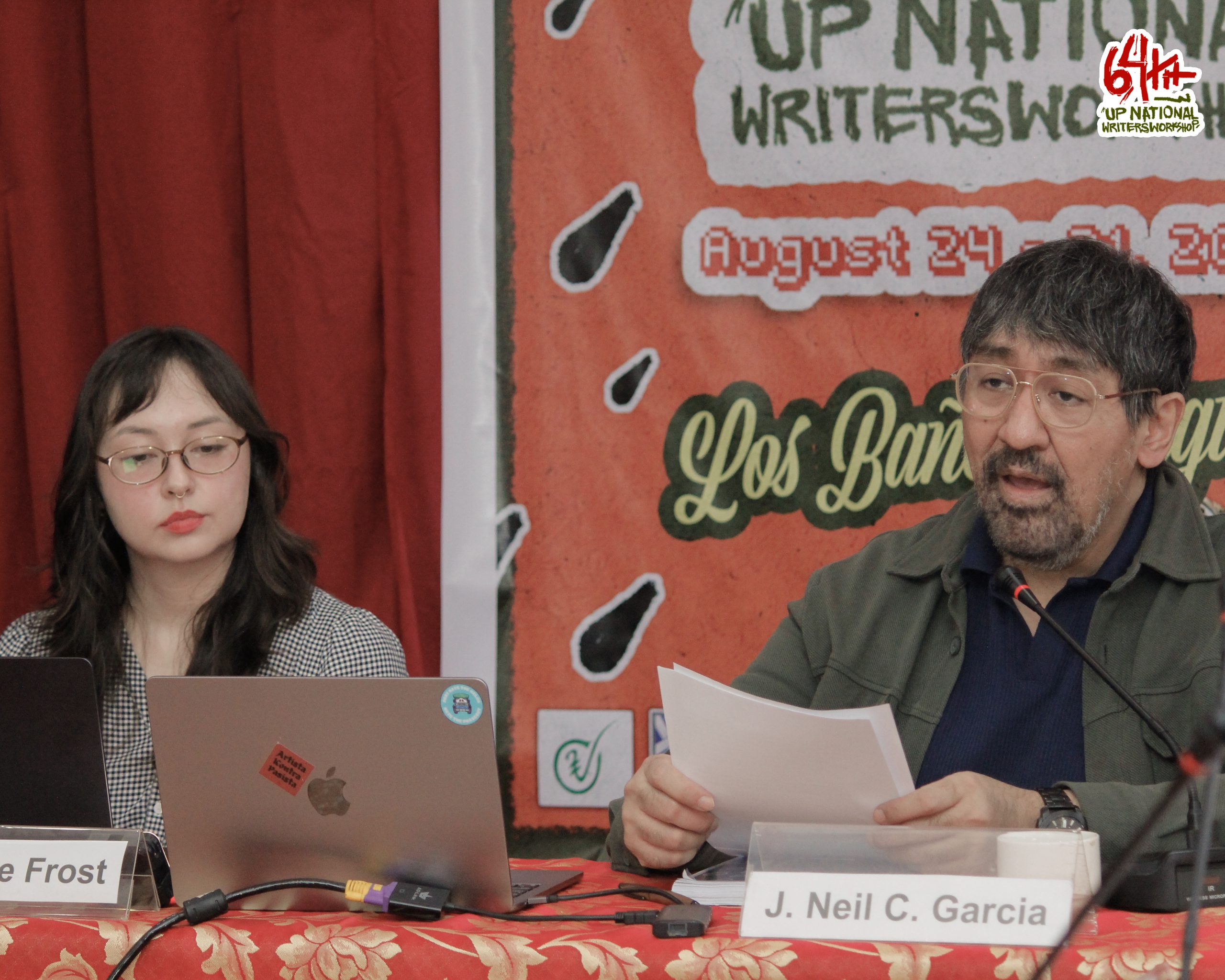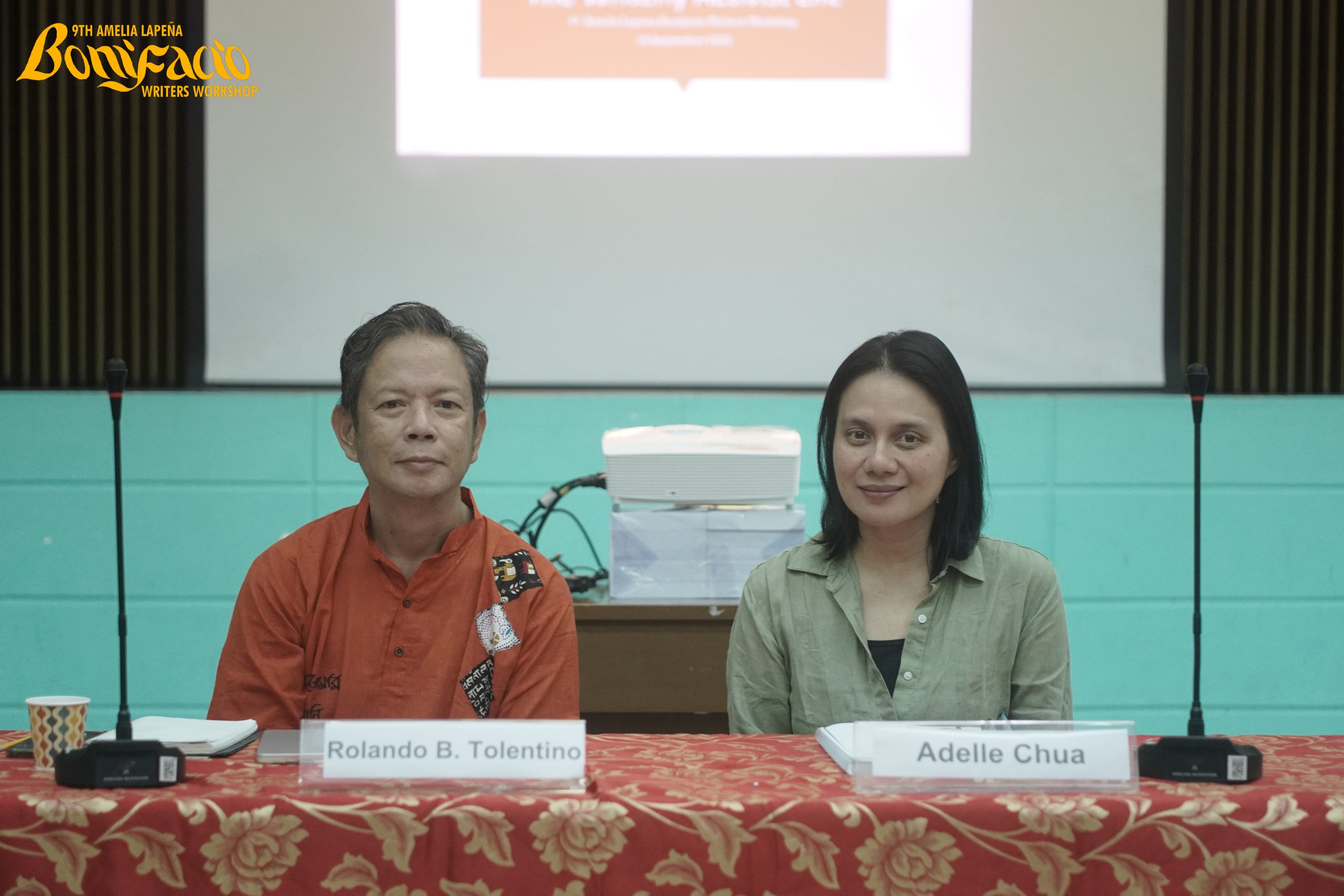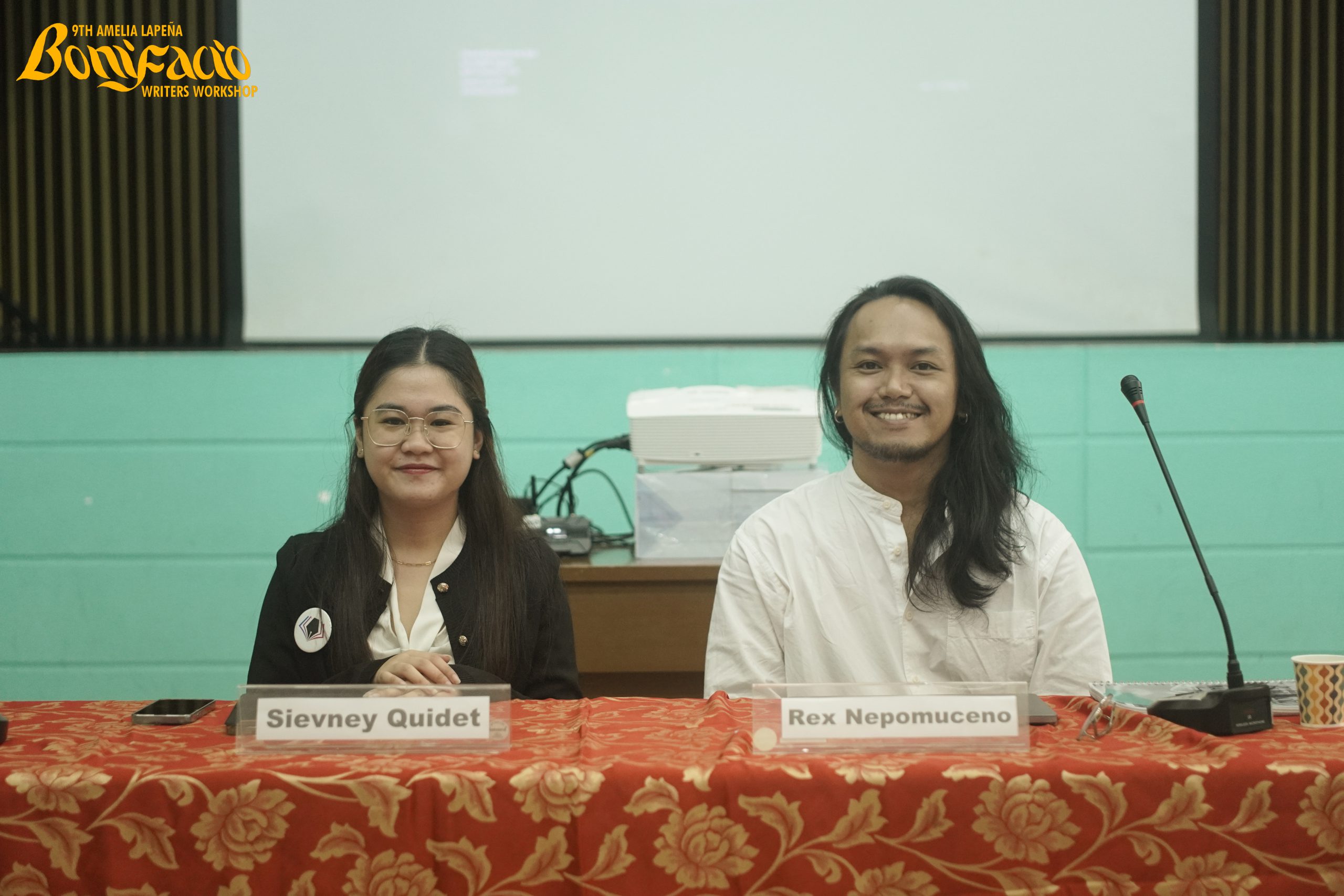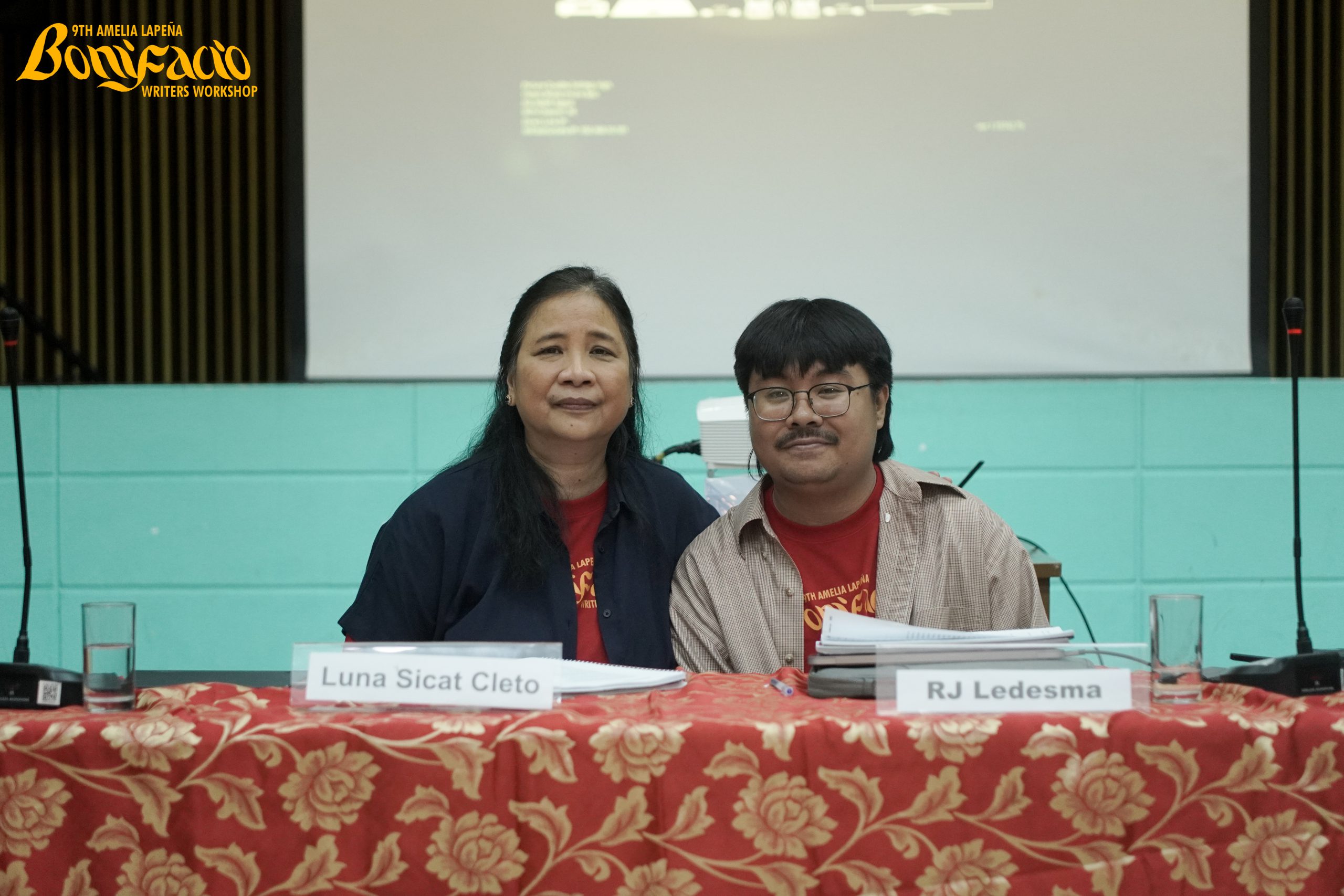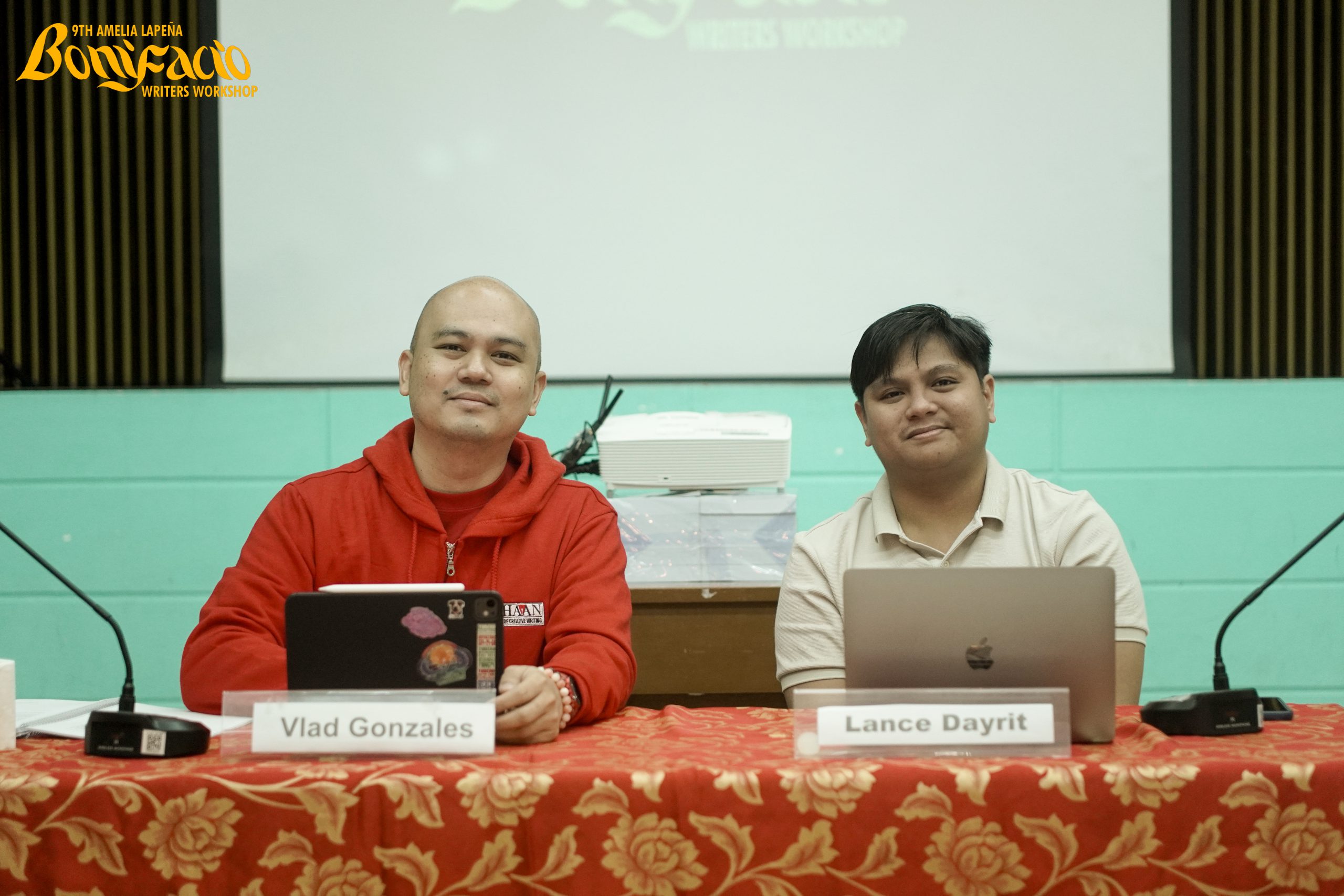Fellow: Krysta Lee Frost
Moderator: J. Neil Garcia
“We need to remind ourselves that what is true in poetry isn’t the same as what is real: it is not circumscribed by what can be experienced; it’s only limit is what can be imagined or dreamed.”
In his introduction to Frost’s Approximations, Dr. J. Neil Garcia elaborated through what he calls the “post-confessional”—a lyric mode that simultaneously builds upon and complicates confessionalism. While Frost’s work exercises the power of poetry to re(dis)cover and heal the fractured self, it is also post-confessional due to its marked awareness of the “artistically realized simulation of the supposedly faithful relationship between life and art.” His main suggestion for the work is the adoption of a mythopoetics—procedural frames such as mythology, popular culture, and history that might reorient the form towards the social and more open idea of “selves.”
Frost shared an anecdote from her childhood about wanting to sing karaoke despite being painfully shy and anxious, a lifelong tendency that has extended to her poetics—this “showing through hiding.” She then named hybridity and liminality as themes she has always gravitated towards as a mixed race person. While her previous works have been concerned with documenting and exploring the unspeakability of this “in-betweenness”, she now wished to veer away from such themes—what she described as her tendency for knee-jerk wallowing—and “towards a poetics of hope and joy.”
Professing an awe of Frost’s craft, Rayji de Guia praised the work’s rhythm and stresses that demand the reader slow down. She also expressed appreciation of the work’s striking reversal in content and form, an example of which is “Ode to Aripirazole,” which subverts the commonly exuberant, joyful form through melancholic content. However, she also pointed out the work’s failure to integrate a social, intersectional model of disability, agreeing with Dr. Garcia’s suggestion of perhaps including more settings and personas.
This suggestion was also supported by Dr. Luna Sicat Cleto, who put forward Frost’s “After Image” as a poem that might benefit from such additional depth and dimensionality. She stressed the importance of polyvocality in filling and fleshing out the blanks. Meanwhile, Kara Medina praised Frost’s language and the fascinating “ruptures” in her work. Citing how early theories of psychology were developed on the experiences and pathologies of privileged individuals, she found value in Frost’s centering of her identity as a mixed-race Filipina.
Next, Dr. Bomen Guillermo pointed out certain colonially entrenched tropes associated with the mestiza, as seen in Jose Rizal’s Maria Clara and Pramoedya Ananta Toer’s Annelise (This Earth of Mankind). Mixed-raceness, perceived as an aberration in colonial discourse, is often metaphorized through madness or illness. Since Frost’s work is a catalogue of pathologizing and personal truths, Dr. Guillermo encouraged further reflection of how her poetry reckons with this mixed-raceness.
Dr. Vim Nadera recounted his experiences working with cancer survivors as an artist and educator, observing a common denominator in their poetry—a personal purpose in life. This same purposefulness—an emotional center or spirituality—is what he is looking for in Frost’s work. Dr. Garcia acknowledged that there is certainly room for this in the work, as any kind of artistic practice is already spiritual; however, he wished to leave it to Frost to decide how and where to anchor her poetry. To end the session, Frost expressed her excitement at challenging herself with the recommendations and suggestions.

